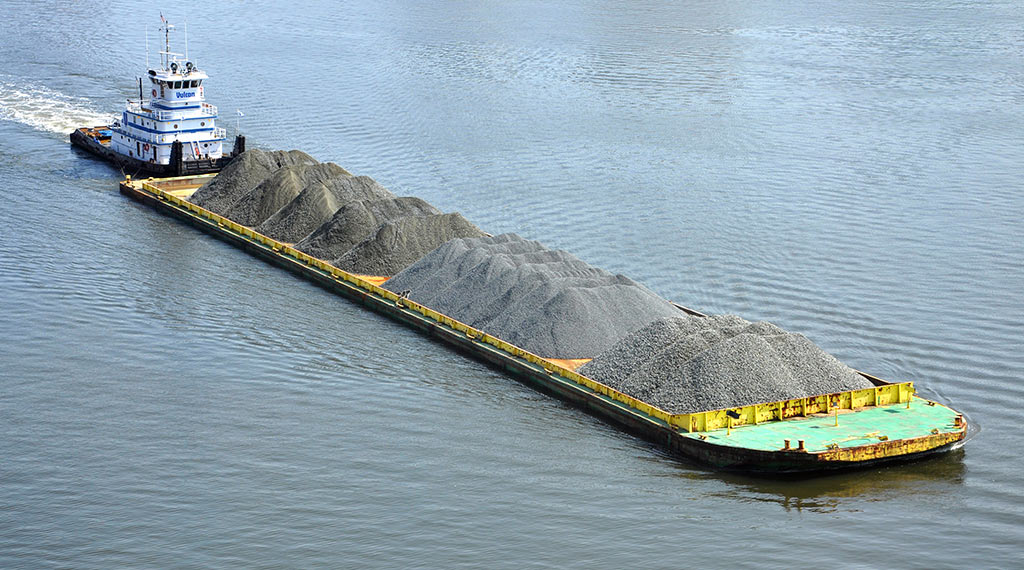Situation Report: Ohio River temporarily closed due to bomb-like devices placed on boats & barges

Over the past week, sections of the Ohio River were closed for transportation to allow law enforcement bomb technicians to safely dispose of what initially appeared to be homemade explosive devices placed on boats and barges in the river near Marietta, Ohio and Williamstown, West Virginia.
The first device was found last Thursday, October 21st on a barge carrying gravel near St. Marys, West Virginia. Four days later on Monday, October 25th two more devices were found on a towboat near Williamstown. Then a fourth device was found on a Marathon Petroleum tow boat pushing fuel barges downriver on Tuesday, October 26th.
Though the river acts as a border between Ohio and West Virginia, state law enforcement jurisdiction for the river belongs to the West Virginia State Police who immediately launched a joint investigation involving the Federal Bureau of Investigation (FBI), Bureau of Alcohol, Tobacco, Firearms, and Explosives (ATF), the U.S. Coast Guard, and numerous local and county law enforcement agencies.
The targeted boating companies, vessel types, and vessel cargo were different for each scenario. Law enforcement investigators believed the devices had been dropped from the Interstate Highway 77 bridge onto the vessels below since at least one of the incidents was reported after a crew member heard metallic objects strike the vessel as it passed under the bridge.
Investigators described the devices as “pipe-bomb-like” and traced the components to a Lowe’s hardware store in Marietta, Ohio. ATF agents surveilled the store and eventually they identified 42-year old Marietta, Ohio resident Nathaniel Becker as the suspect, putting him under arrest for possession of one or more unregistered destructive devices.
The U.S. Attorney’s Office for the Southern District of West Virginia commended investigators and the support of the public throughout the investigation. U.S. Attorney Will Thompson said, “I commend the many law enforcement agencies for their swift investigation leading to Becker’s arrest. The cooperation of Lowe’s was instrumental in Becker’s arrest, and I thank them for their assistance.”
Becker is an iron worker and father of three children with an apparent history of mental illness. Last year he was involved in a high speed chase and barricade situation with law enforcement, leading to a felony arrest. He appeared in federal court on Tuesday, November 2nd where the judge ruled that he will remain in the custody of the U.S. Marshals since he poses a flight risk.
The devices Becker created were 1.5” diameter metal pipes capped with a cloth wick that was charred as though he had attempted to light it. While none of the devices exploded and though law enforcement x-rays apparently found them to be harmless, it is unclear whether Becker intended for them to damage the targeted vessels.
Since one of the vessels was carrying nearly 44,000 gallons of fuel oil, the impact of a successful bombing could have been significant. Even if the devices were hoaxes, they did disrupt commerce and river traffic, caused numerous law enforcement agencies to expend time and resources to investigate, and caused commercial vessels to be on the alert when transiting under bridges. While it is unlikely that Becker was conducting these activities to probe law enforcement/industry responses, it should be assumed that terrorists, including domestic anarchists looking to target critical infrastructure, may have gathered some lessons learned from his crimes.
- Putin’s “operation holodomor” - February 12, 2026
- Gridlock: why America’s power supply is in danger - February 11, 2026
- “Within 72 Hours, the American Population Will Break Down”: Lt. Col. Tommy Waller - January 8, 2026
